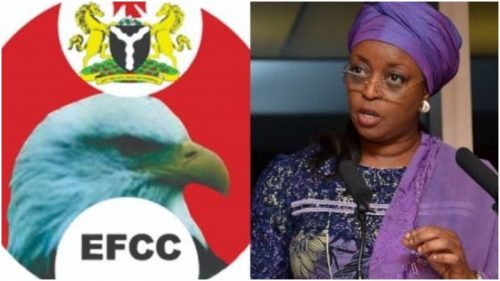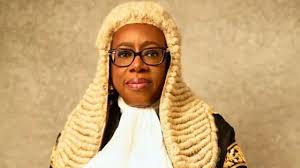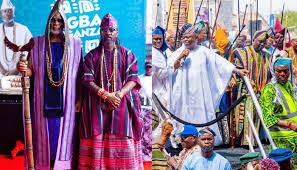Slave Case : Judge Aborts Trial, Sets New Date for Oct.
The Harrow Crown Court trial of the Nigerian couple accused of holding a 39-year-old fellow Nigerian, Ofonime Sunday Inuk in slavery in the United Kingdom for 24 years, was terminated abruptly before noon last Friday.
The judge discharged the 12-man jury, telling the four women and eight men sitting to his left on two long benches: “I have been listening to legal arguments and considering what I’ve heard, I have to retire and discharge you at this stage.”
A new date, beginning on October 26, this year, was set for a three-week retrial of 60-year-old, gynaecologist and obstetrician, Dr Emmanuel Edet and his 58-year-old senior nursing sister wife, Antan. Both took the agonising frustration of a new trial on chin, as they listened behind the dock.
A new date, beginning on October 26, this year, was set for a three-week retrial of 60-year-old, gynaecologist and obstetrician, Dr Emmanuel Edet and his 58-year-old senior nursing sister wife, Antan. Both took the agonising frustration of a new trial on chin, as they listened behind the dock.
Edet said “no comments,” when the Daily Times sought his reaction outside the courtroom , minutes later.
Continuing in a sober mood, perhaps because of the number of days that had been sacrificed to honour the jury service, Judge Arran told the jury foreman and other jurors, that he acknowledged “it may be disappointing and frustrating for some of you and I do understand that.”
Continuing in a sober mood, perhaps because of the number of days that had been sacrificed to honour the jury service, Judge Arran told the jury foreman and other jurors, that he acknowledged “it may be disappointing and frustrating for some of you and I do understand that.”
Giving just a hint of why he halted the proceedings that was set to end this week, Arran said: “There is an exhibit which you should not have seen, which had been included in the jury-bundle.”
Warning them not to talk carelessly about the case, because it is still active, the judge said: “Don’t chat too much about it.”
Without making reference to the exhibit that had contaminated the case, he said: “The exhibit you have seen is unhelpful, so be careful of what you say about this case because it has generated a lot of publicity.”
Although the Daily Times and just two female members of the public were inside courtroom 1, witnessing legal arguments that eventually led to the collapse of the trial, court restrictions preventing this from being reported are in place and can only be made public until the end of the retrial in November.
Although the Daily Times and just two female members of the public were inside courtroom 1, witnessing legal arguments that eventually led to the collapse of the trial, court restrictions preventing this from being reported are in place and can only be made public until the end of the retrial in November.
The collapse of the trial was unknowingly initiated by Helen Valley, defending Dr Edet, who raised the issue of the particular exhibit. This generated a three-way intense legal argument by the defence counsel (including Miss Emma Akuwudike, for Mrs Edet), the judge and crown prosecutor, Roger Smart. This lasted for over half an hour, and as it became obvious that a retrial was inevitable, Arran asked that the jury be called in without further delay, at about 11.42, when he then addressed them.
After making them aware that he was terminating the trial abruptly, the judge added: “I discharge you from further service with much regret,” and ” if you find it frustrating, I apologise.”
After making them aware that he was terminating the trial abruptly, the judge added: “I discharge you from further service with much regret,” and ” if you find it frustrating, I apologise.”
Within two minutes afterwards, he addressed them for the last time, saying: “You leave the court with my thanks,” and “thank you very much for the last couple of weeks.”
The abrupt termination came just a day after the high stakes’ trial heard the testimonies of two expert witnesses, Dr Elizabeth Hales, and Nigeria – based lawyer, Dr Chima Umezuruike , who addressed the court via video link from his base.
The latter and Hales, a social anthropologist, argued intensely in their reports and cross-examinations on children adoption and inheritance, as the prosecution argued its case on a number of fronts, including making a submission that Inuk’s name was only changed to Edet, to facilitate his travel as a houseboy, and not as an adopted son.
Hales also argued on that basis, quoting among others, a United Nations Children Education’s Fund, UNICEF report of 2006, that about 15 million Nigerian children were in paid work, and so, Inuk was probably adopted in 1988, on that basis.
Hales also argued on that basis, quoting among others, a United Nations Children Education’s Fund, UNICEF report of 2006, that about 15 million Nigerian children were in paid work, and so, Inuk was probably adopted in 1988, on that basis.
Umezuruike, on his part, countered that line of argument, telling the court from Nigeria, that houseboys don’t change their names to those of their employers, and as such Ofonime must have become a son by virtue of the customary adoption ceremony that took place in Calabar in 1988, and witnessed by representatives of both families, as customs demand.
Akuwudike, meanwhile, cross-examined Hales on the houseboy scenario, among others, making the latter know that Inuk couldn’t have been employed without job description. She also asked Hales, who based her report on UNICEF’s statistics, that, “can I ask you if you’ve done any of your research on adoption done between relatives?”
Akuwudike, meanwhile, cross-examined Hales on the houseboy scenario, among others, making the latter know that Inuk couldn’t have been employed without job description. She also asked Hales, who based her report on UNICEF’s statistics, that, “can I ask you if you’ve done any of your research on adoption done between relatives?”
Hales replied,” No, I’ve not.”on continues.








